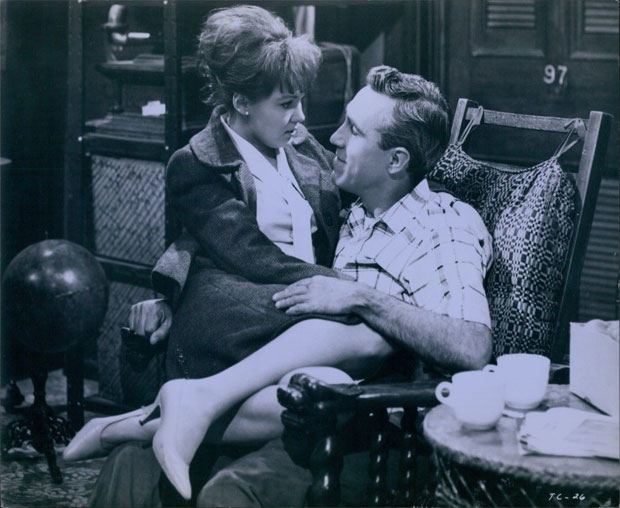Barbara Harris, Beloved Tony-Winning Stage and Screen Actor, Dies at 83
The Second City alumnus also starred in ”On a Clear Day You Can See Forever” on Broadway and films such as ”Nashville” and ”Freaky Friday”.

(© United Artists/MGM)
Barbara Harris, Tony-winning star of stage and screen, died early Tuesday in Scottsdale, Arizona, where she had spent the last years of her life directing and teaching acting. The cause was lung cancer, according to Charna Halpern, cofounder of Chicago's iO Theater. She was 83.
Born in Evanston, Illinois, Harris, as a teenager, began her professional career with the Playwright's Theatre Club in Chicago, where she worked alongside Edward Asner, Mike Nichols, Elaine May, and more. She later joined the Compass Players, the first improvisational troupe in the United States; and after the Compass Players dissolved, she then became a part of the legendary Second City troupe. (Harris was briefly married to Paul Sills — cofounder of the Playwright's Theatre Club, the Compass Players, and the Second City — from 1955 to 1958.)
The Second City helped lead Harris to Broadway through the 1961 revue From the Second City, in which she appeared alongside Severn Darden, Alan Arkin, and others at the Royale Theatre. She would appear on New York City stages throughout that decade in, among other roles, the original Broadway production of On a Clear Day You Can See Forever; the Jerry Bock-Sheldon Harnick musical The Apple Tree, for which she won a Tony Award for Best Actress in a Musical in 1967; and the first American off-Broadway production of Kurt Weill and Bertolt Brecht's The Rise and Fall of the City of Mahagonny in 1970.
During that time, she was also getting her TV and feature-film career off the ground, appearing in an episode of Alfred Hitchcock Presents in 1961 and later making her big-screen debut in the 1965 film A Thousand Clowns, opposite Jason Robards. Even as she stopped making stage appearances, she continued to be seen in the cinema, acting in films like Nashville (1975), Hitchcock's swan song Family Plot (1976), and the original Freaky Friday (1977). She garnered an Oscar nomination for her turn in Who Is Harry Kellerman and Why Is He Saying Those Terrible Things About Me? (1971). Her last screen roles were in Dirty Rotten Scoundrels (1988) and Grosse Pointe Blank (1997).








